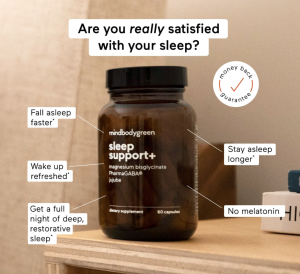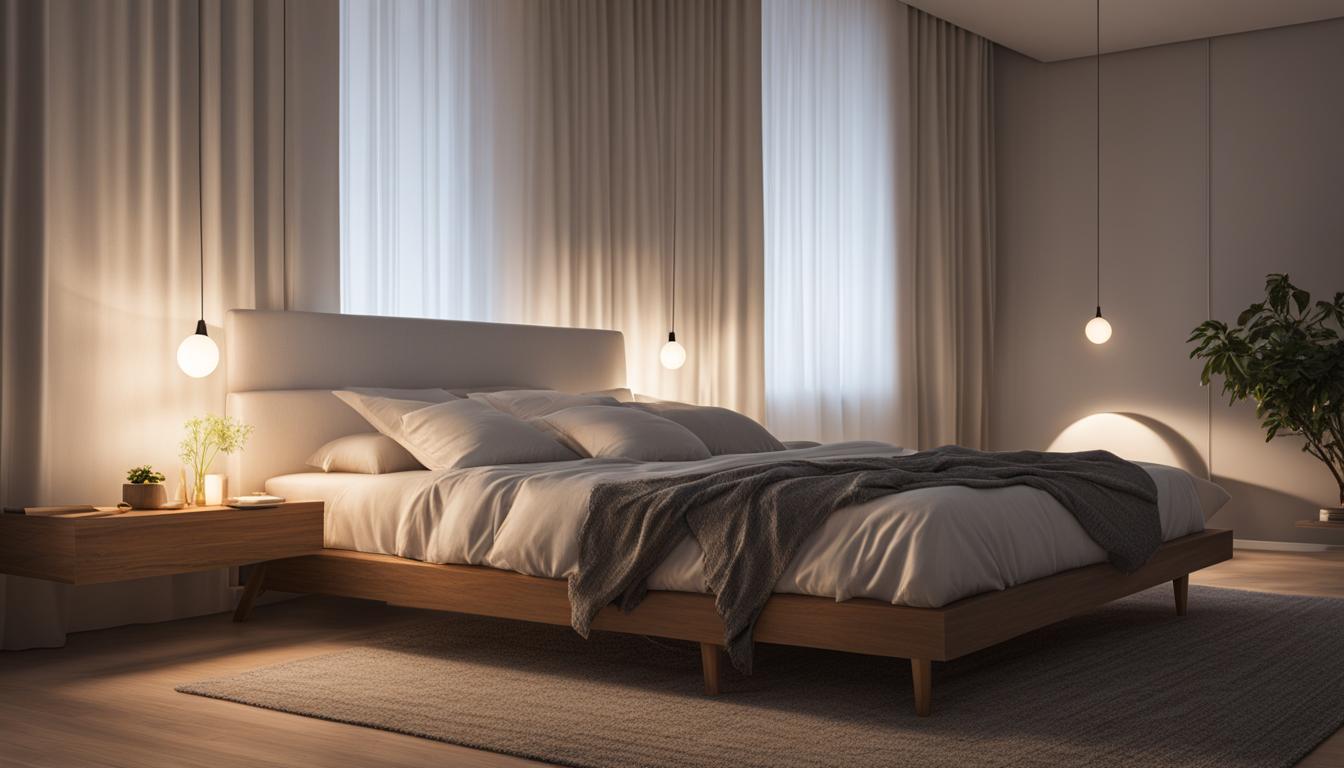Table of Contents
ToggleIntroduction
Embracing quality sleep is not just a luxury; it’s a necessity for maintaining robust physical health, sharp mental clarity, and emotional equilibrium.
In this guide, we delve into the transformative power of quality sleep, offering expert insights and practical strategies to enhance your sleep habits.
From optimizing your bedroom environment to adopting effective sleep hygiene practices, we provide you with the tools and knowledge needed to unlock the full potential of restful sleep, ensuring you wake up rejuvenated and ready to tackle the challenges of the day.
Key Takeaways:
- Implementing healthy sleep habits is crucial for achieving quality sleep.
- Creating a sleep-friendly bedroom environment can significantly improve sleep quality.
- Establishing a consistent sleep schedule helps regulate your body’s internal clock.
- Practicing good sleep hygiene involves adopting habits that promote better sleep quality.
- Managing stress and anxiety levels is essential for a restful night’s sleep.
Now, let’s dive into each of these aspects and discover the best practices for achieving the quality sleep you deserve. Remember, a good night’s sleep is within your reach, and we’re here to guide you every step of the way.
Importance of Quality Sleep for Physical and Mental Well-being
Quality sleep enables the body to repair and rejuvenate itself, which is crucial for maintaining good health.
Physically, it supports vital functions such as immune response, tissue repair, and muscle growth.
Quality sleep also plays a key role in mental health, enhancing cognitive functions like memory, problem-solving skills, and creativity.
It helps in managing stress and emotions, contributing to better mood regulation and resilience against mental health challenges.
Adequate sleep is linked to reduced risks of chronic diseases, including heart disease, obesity, and diabetes, by helping to regulate metabolism and hormonal balance.
Benefits of Quality Sleep
- Enhanced Brain Function: Quality sleep sharpens cognitive abilities such as clarity of thought, focus, and decision-making skills. This improved mental acuity is essential for daily tasks and long-term cognitive health.
- Improved Learning and Memory: Quality sleep boosts cognitive performance, making it easier to learn new information and retain it effectively. This enhanced brain function is crucial for academic success and lifelong learning.
- Stronger Immune System: It fortifies the body’s defense mechanisms, helping to fight off illnesses and infections more effectively. Consistent quality sleep is key to maintaining a robust immune system, reducing the likelihood of sickness.
- Mood Regulation: Adequate rest leads to improved mood stability, increased positivity, and better emotional resilience. Quality sleep is vital for emotional well-being and helps in managing mood disorders.
- Stress Management: Being well-rested helps in handling daily stress and challenges more effectively. Quality sleep provides the mental and emotional balance needed to cope with life’s pressures.
- Reduced Risk of Chronic Conditions: Quality sleep is linked to a lower risk of developing chronic health issues like obesity, heart disease, and diabetes. It plays a significant role in overall long-term health and prevention of these diseases.
- Regulation of Metabolic Functions: It helps maintain healthy metabolic processes, which can prevent issues such as weight gain, high blood pressure, and insulin resistance. Adequate sleep is crucial for metabolic health and maintaining a healthy weight.

Creating a Sleep-Friendly Bedroom Environment
Optimizing your bedroom is essential for fostering restful and rejuvenating sleep.
To transform your bedroom into a sleep sanctuary, consider the following enhanced tips:
Cool the room: Maintain your bedroom at a comfortable temperature, ideally between 60-67°F. A cooler room not only promotes better sleep but also prevents night sweats, aiding in uninterrupted sleep cycles.
Reduce noise: Utilize white noise machines or earplugs to minimize noise disruptions. This step is vital in creating a serene atmosphere conducive to uninterrupted sleep, especially in noisy urban environments or for light sleepers.
Darken the room: Install blackout curtains or use a sleep mask to block out ambient light. A dark environment is key to enhancing the production of melatonin, the sleep-inducing hormone, and ensuring deeper sleep phases.
Invest in comfort: Select a mattress and pillows that provide both comfort and adequate support, tailored to your body’s needs. This investment can significantly improve sleep quality by reducing physical discomfort and aligning the spine correctly.
Incorporate white noise: If sensitive to sudden sounds, a white noise machine can be a game-changer, masking disturbances and promoting a calm sleep environment. It’s particularly useful in maintaining consistent sound levels, which can be crucial for uninterrupted sleep.
By thoughtfully implementing these suggestions, you can create a bedroom environment that significantly enhances the quality of your sleep, leading to better health and well-being.

Establishing a Consistent Sleep Schedule
To establish a consistent sleep schedule, start by determining the amount of sleep you need for optimal functioning, typically between 7 to 9 hours for most adults.
Set a fixed wake-up time and work backward to establish a consistent bedtime, ensuring you get the full amount of required sleep.
Stick to these times every day, even on weekends, to reinforce your body’s sleep-wake cycle.
Consistency is key, so make your sleep schedule a priority.
Adjust your evening activities to wind down and prepare for bed at the same time each night.
Create a pre-sleep routine that signals to your body it’s time to rest, such as dimming lights, reading, or listening to calm music.
If you find it hard to fall asleep at first, maintain the wake-up time strictly, as it will gradually help in adjusting your body’s internal clock.
Avoid long naps during the day, especially in the afternoon, as they can interfere with nighttime sleep.
Gradually, your body will adapt to this routine, making it easier to fall asleep and wake up at the set times.
Remember, consistency and a disciplined approach are crucial for establishing and maintaining a consistent sleep schedule.
Practicing Good Sleep Hygiene Habits
Practicing good sleep hygiene habits is essential to achieve the quality sleep your body and mind need.
Adopting these healthy sleep practices can significantly improve your sleep quality and overall well-being. Let’s dive into some key tips for enhancing your sleep hygiene:

Avoiding Stimulating Activities Before Bed
Adopting the habit of avoiding stimulating activities before bedtime stands as a crucial step toward better sleep.
Particularly noteworthy is the need to limit screen time on electronic devices.
The blue light from screens suppresses melatonin production, making falling asleep more challenging.
Instead, engage in relaxation techniques such as reading, listening to soothing music, or practicing mindfulness meditation.
These activities calm your mind and prepare your body for restful sleep.
Limiting Caffeine and Alcohol Intake
Mindfully managing your caffeine and alcohol intake forms a crucial aspect of good sleep hygiene.
Since caffeine is a stimulant that disrupts your sleep cycle, you should limit its consumption, particularly in the afternoon and evening.
Similarly, while alcohol might initially induce drowsiness, it often hampers sleep quality later in the night.
Choosing herbal tea or decaffeinated alternatives over caffeine, and if you do consume alcohol, doing so moderately and not close to bedtime, can significantly improve your sleep quality.
Avoiding Heavy Meals Before Bedtime
Indulging in heavy meals before bedtime often disrupts sleep by causing discomfort and indigestion.
To enhance sleep quality, aim to finish your dinner a few hours before going to bed.
Choose light, nutritious snacks in the evening if hunger strikes, avoiding those that cause discomfort.
Also, steer clear of spicy or greasy foods before bedtime to prevent sleep disturbances.
Implementing these sleep-friendly habits significantly improves your sleep hygiene, setting the stage for a restful night.
By focusing on relaxation, limiting stimulants, and adhering to a routine aligned with your natural sleep-wake cycle, you actively cultivate the healthy sleep habits essential for a rejuvenating sleep experience.

Managing Stress and Anxiety for Better Sleep
Stress and anxiety significantly affect sleep quality, often making it difficult to relax and quiet the mind for sleep.
Practicing deep breathing exercises, for instance, calms the body and mind.
Engaging in this simple yet potent method, by taking slow and deep breaths, triggers the body’s natural relaxation response, thereby lowering stress levels.
Journaling also serves as an effective technique.
Actively writing down thoughts and feelings before bedtime offers a cathartic experience, helping to process emotions and release tension.
This practice brings clarity and closure, easing anxiety and fostering a peaceful mindset.
Additionally, participating in calming activities before bed greatly diminishes stress and anxiety.
Activities like reading, enjoying a warm bath or listening to soothing music not only bring joy and relaxation but also prepare the body for sleep.
A peaceful mind indeed opens the door to restful sleep.
The Role of Physical Activity in Quality Sleep
Activities like brisk walking, cycling, or gym workouts, when integrated into your daily routine, positively impact your sleep.
Exercise offers various sleep-enhancing benefits. It shortens the time needed to fall asleep, prolongs deep sleep phases, and reduces nighttime awakenings.
Additionally, it alleviates stress and anxiety, common causes of sleep disruptions.
While physical activity boosts sleep, avoid intense workouts close to bedtime.
Vigorous exercise can energize the body, hindering relaxation and sleep preparation.
For optimal sleep benefits, complete exercises a few hours before bed, allowing your body temperature to normalize and easing the transition into restful sleep.
Prioritizing daily physical activity improves both physical health and sleep quality.
Include enjoyable activities in your schedule, like morning runs, yoga, or dance.
Experiment with different exercises to discover what suits you best.
Regular physical activity not only promotes a healthier lifestyle but also ensures a rewarding good night’s sleep.
The Impact of Diet and Nutrition on Sleep Quality
The foods and drinks you consume can greatly influence your ability to fall asleep quickly, stay asleep through the night, and experience deep, restorative sleep.
For instance, heavy or spicy meals consumed close to bedtime can lead to discomfort or indigestion, which may impede your ability to relax and sleep well.
On the other hand, lighter and more easily digestible meals in the evening can promote better sleep.
Caffeine, a stimulant found in coffee, tea, soda, and other beverages, can disrupt your sleep cycle, particularly if consumed in the afternoon or evening.
Similarly, alcohol, despite its initial sedative effects, can lead to fragmented and less restful sleep later in the night.
The timing and type of snacks you choose can also impact your sleep.
Opting for light and nutritious snacks rather than heavy or sugary ones can prevent disruptions in your sleep caused by fluctuations in blood sugar levels.
Minimizing Environmental Disruptions for Restful Sleep
Environmental disruptions significantly impact our sleep quality, making it crucial to craft a sleep environment that minimizes these disturbances for uninterrupted and rejuvenating sleep.
Firstly, we must actively reduce noise, a key disruptor of sleep.
Whether dealing with external traffic, a neighbor’s party, or a snoring partner, we can block out these noises using earplugs, white noise machines, or fans, thereby fostering a more peaceful environment.
Light is another critical factor, as our bodies naturally crave darkness for sleep.
To ensure this, we should install blackout curtains or blinds to keep light out of the bedroom, or use a comfortable sleep mask for a dark sleeping environment.
Lastly, maintaining a comfortable bedroom temperature is essential, as temperature extremes can disturb sleep.
We should consider using fans or adjusting the thermostat to sustain a cool, comfortable environment conducive to quality sleep.
Seeking Professional Help for Sleep Disorders
If sleep issues consistently challenge your quality of life, actively seek professional help.
Conditions like insomnia, sleep apnea, or restless leg syndrome often require medical intervention or specialized therapies.
Actively engage with a healthcare provider or a sleep specialist to diagnose and treat any underlying issues effectively.
Do not overlook sleep disorders, as they can seriously impact your overall health and well-being.
Address these issues directly with the guidance and expertise of professionals specializing in sleep disorders.
Securing an accurate diagnosis is crucial to tailor the most effective treatment plan for your specific sleep disorder.
Sleep specialists, with their knowledge and experience, can pinpoint the root causes of your sleep issues and craft a personalized treatment approach.
Proactively reaching out to a sleep specialist opens up a spectrum of treatment options.
Depending on your diagnosis, treatments like cognitive-behavioral therapy for insomnia (CBT-I), continuous positive airway pressure (CPAP) for sleep apnea, or specific medications could significantly benefit you.
By seeking professional assistance, you embark on a proactive journey to manage and enhance your sleep quality.
Remember, restful and rejuvenating sleep is your right, and experts are available to help you achieve it.
Supplements and Medications for Sleep Improvement
In some cases, individuals might actively consider using supplements or medications to enhance their sleep quality.
These options can be especially beneficial for those who struggle to regulate their sleep-wake cycles or find it difficult to relax before bed.
Sleep Supplements:
Melatonin supplements, widely acknowledged as effective natural sleep aids, assist in regulating sleep-wake cycles.
The pineal gland in the brain produces melatonin, a hormone that controls the body’s internal clock.
By taking melatonin supplements, you can adjust your body’s natural sleep rhythm, promoting a more restful and rejuvenating night’s sleep.
Natural Sleep Aids:
Several natural sleep aids actively promote relaxation and support better sleep.
For centuries, people have used valerian root as an herbal remedy for sleep disorders and anxiety due to its sedative properties that help induce sleep and enhance sleep quality.
Chamomile tea, known for its calming effects, also stands as a popular choice, aiding in stress reduction and sleep improvement.
However, it’s crucial to consult a healthcare professional before starting any new supplements or medications.
They will actively assess your specific needs and provide personalized recommendations based on your individual circumstances, considering any existing health conditions or medications.

A Word from HealthyVibe
Embracing the journey to quality sleep is not just a step towards better nights; it’s a leap into a life brimming with vitality, clarity, and emotional balance.
Let’s transform our bedrooms into havens of tranquility, synchronize our bodies with rhythms of rest and wakefulness, and choose lifestyle habits that whisper to our minds, ‘It’s time to rest.’
This is more than a routine; it’s a celebration of the restorative power of sleep.
As we embrace these changes, each morning greets us with a promise of newfound energy and potential, reminding us that the key to a vibrant, fulfilling life lies in the simple, yet profound act of cherishing our sleep.
FAQ
What Key Elements Should I Include in a Sleep-Friendly Bedroom Environment?
Include a cool room temperature (60-67°F), use white noise machines or earplugs to reduce noise, install blackout curtains or use a sleep mask for darkness, and choose a comfortable mattress and pillows that suit your body.
How Does Consistently Following a Sleep Schedule Enhance Sleep Quality?
Consistently following a sleep schedule regulates your internal clock, easing the process of falling asleep and waking up naturally. Maintaining the same sleep and wake times every day, including weekends, strengthens your natural sleep-wake cycle and enhances sleep efficiency.
What Sleep Hygiene Practices Should I Adopt for Better Sleep?
Adopt practices like avoiding screen time and stimulating activities before bed, limiting caffeine and alcohol intake, steering clear of heavy meals before bedtime, and establishing a relaxing routine like reading or listening to calm music before sleep.
Why Should I Manage Stress for Quality Sleep and How Can I Do It?
Manage stress because it can disrupt your ability to fall and stay asleep. Use techniques such as deep breathing exercises, journaling, and calming activities before bed to promote relaxation and improve sleep quality.
How Does Physical Activity Affect Sleep Quality and What Are the Best Practices?
Engage in regular physical activity to improve sleep quality. It helps regulate your sleep-wake cycle, reduces the time to fall asleep, and increases deep sleep. However, avoid intense workouts close to bedtime as they can be too stimulating. Opt for moderate exercise earlier in the day for better sleep outcomes.










